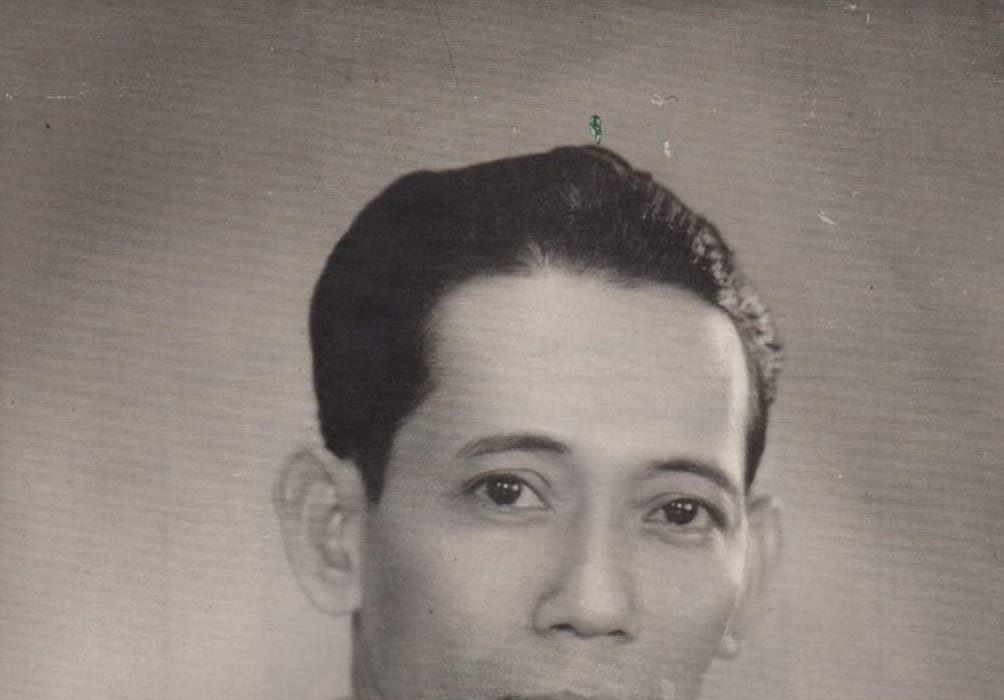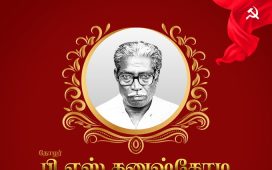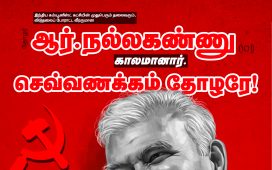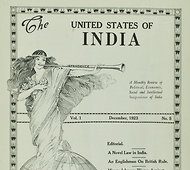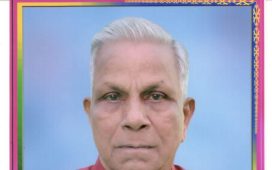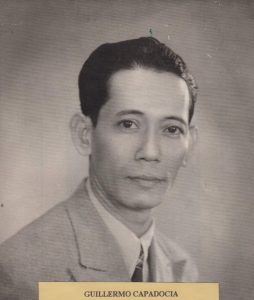 Capadocia was the son of a poor labourer but that did not deter him from becoming highly literate and gaining a deep knowledge of Marxist-Leninist thought. He was one of the founders of the Communist Party of the Philippines in 1930. He was a leading figure in the Katipunan ng mga Anak Pawis ng Pilipinas (KAP). He helped unify the Communist and Socialist Parties of the Philippines. From 1938 to 1941 he was the executive secretary of the Collective Labor Movement, a trade union confederation which advocated for full independence of the Philippines, condemned racketeering among trade unions and advocated for social justice. From 1945 to 1950 he was vice president of the Philippine Congress of Labor Organization (CLO), a post world war 2 trade union federation formed by former Hukbalahap guerrillas. CLO was once a dominant labor federation, representing a significant portion of organized labor force on industries based in Panay and Manila.
Capadocia was the son of a poor labourer but that did not deter him from becoming highly literate and gaining a deep knowledge of Marxist-Leninist thought. He was one of the founders of the Communist Party of the Philippines in 1930. He was a leading figure in the Katipunan ng mga Anak Pawis ng Pilipinas (KAP). He helped unify the Communist and Socialist Parties of the Philippines. From 1938 to 1941 he was the executive secretary of the Collective Labor Movement, a trade union confederation which advocated for full independence of the Philippines, condemned racketeering among trade unions and advocated for social justice. From 1945 to 1950 he was vice president of the Philippine Congress of Labor Organization (CLO), a post world war 2 trade union federation formed by former Hukbalahap guerrillas. CLO was once a dominant labor federation, representing a significant portion of organized labor force on industries based in Panay and Manila.
In January 1942, Capadocia, Pedro Abad Santos and Crisanto Evangelista were arrested by Japanese forces and imprisoned in Fort Santiago. He was released several years later.
Capadocia was a leading advocate for workers’ rights in the Philippines, and he was instrumental in forming some of the country’s first labor unions. He was also heavily involved in the pro-labor movement in the Philippines, and he played a key role in a number of strikes and demonstrations.
Capadocia was known for his fiery rhetoric and his passionate advocacy for the rights of the working class. He was a strong believer in the principles of communism, and he spent much of his life working toward creating a truly egalitarian society in the Philippines. He was highly respected by his fellow communists and by labor activists throughout the country.
However, Capadocia’s activism also made him a target of the government. He was arrested multiple times for his political activities and was frequently the subject of harassment and surveillance by law enforcement officials. Despite this, he continued to work tirelessly for the cause of workers’ rights and the communist movement in the Philippines.
In 1950 he went underground to lead the Hukbalahap guerillas on the island of Panay. Capadocia and several fighters were killed by government forces in their hideout in the mountains of Panay on September 1951 at the age of just 48. His death was a great loss to the PKP and to the labor movement in the Philippines, and he is remembered today as a hero of the struggle for workers’ rights and social justice.
Guillermo Capadocia’s legacy as a communist politician and labor leader in the Philippines is one that continues to inspire activists and advocates for social justice throughout the country. His tireless advocacy for workers’ rights, his passionate belief in the principles of communism, and his steadfast commitment to the struggle for social equality and justice serve as a powerful reminder of the ongoing struggle for a more equitable and just society.

